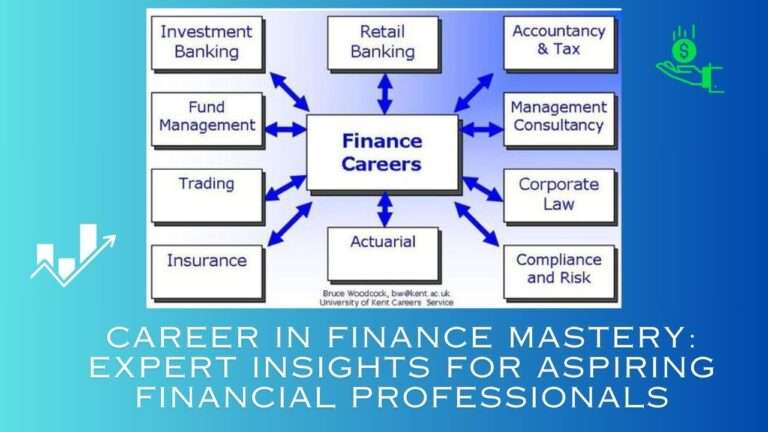Beginner Data Science Guide: Your Path to Success
Embarking for the Beginner Data Science Journey: Essential Tips
Data science, a rapidly growing domain, holds immense potential for those seeking to make a difference in our data-driven world. Whether I’m a recent graduate, a professional aiming to switch careers, or just curious about data science, I might find the initial steps overwhelming. However, by focusing on fundamentals and establishing a solid foundation, I can set myself up for success.
In this article, I will explore key tips for beginner data science, enabling them to start their journey effectively.
Beginner Data Science: Mastering Statistics and Mathematics Basics
To excel in data science, a strong grasp of statistics and mathematics is fundamental. Concepts like probability, hypothesis testing, linear algebra, and calculus underpin data analysis principles. By dedicating time to revisiting these basics, I can comprehensively understand the core techniques and concepts pivotal to data science.
Developing Programming Proficiency
Proficiency in programming languages stands as a cornerstone for data scientists. Python and R are prevalent languages within the data science community. Starting with Python, its versatility and simplicity make it an excellent entry point for beginners. Becoming familiar with data manipulation libraries like Pandas and visualization tools such as Matplotlib or Seaborn is essential. Additionally, learning SQL for database querying proves advantageous.
Beginner Data Science: Immersing into Machine Learning
Machine learning constitutes a pivotal aspect of data science. Familiarity with distinct machine learning algorithms, including supervised learning (classification, regression), unsupervised learning (clustering, dimensionality reduction), and reinforcement learning, is paramount. Implementing algorithms from scratch and tackling small projects solidifies my comprehension.
Hands-On Practice with Real-World Data
Ultimately, data science revolves around working with data. Actively seeking real-world datasets from sources like Kaggle, UCI Machine Learning Repository, or public APIs allows me to gain practical experience. Through data analysis and visualization, I can acquire firsthand experience, applying the theories learned.
Crafting a Personal Portfolio
A robust portfolio plays a pivotal role in showcasing my skills to potential employers or clients. Within it, I can feature data science projects, code samples, and visualizations. Carefully selecting projects that align with my interests while demonstrating a range of techniques is essential. Sharing this portfolio on platforms like GitHub or Kaggle invites feedback and fosters connections within the data science community.
Continuous Learning Engagement
Given the dynamic nature of data science, consistent learning is crucial. Staying updated through research papers, influential blogs, and participation in online courses or webinars keeps me at the forefront of the field, broadening my knowledge base.
Beginner Data Science: Engaging in Data Science Communities
Networking and collaborating with fellow data science enthusiasts enhance the learning journey. Active participation in online forums, attending meetups or conferences, and joining data science communities on platforms such as LinkedIn or Slack exposes me to diverse perspectives, nurturing growth.
Read More-
Why Data Science is the Most Exciting Career of the 21st Century ?
Prioritizing Problem-Solving Skills
At its core, data science revolves around problem-solving. Nurturing these skills entails breaking complex tasks into manageable steps, exploring various approaches, and iteratively refining solutions.
Developing an analytical mindset and honing critical thinking is essential for effectively tackling intricate data challenges.
Effective Communication as a Cornerstone
The ability to communicate findings adeptly is pivotal for a data scientist. By honing strong storytelling and data visualization skills, I can present insights clearly to both technical and non-technical audiences.
The capacity to convey intricate concepts in a concise and understandable manner holds immense value.
Beginner Data Science: Embracing Setbacks and Persevering
Data science is an ongoing journey of learning and experimentation. Embracing failures and setbacks as opportunities for growth is paramount. Not every project will yield the desired outcomes, yet each offers a chance to refine skills and gather valuable insights. Persevering through challenges, coupled with consistent effort and determination, allows me to master the fundamentals of data science.
In conclusion, a solid grasp of fundamentals is integral for novice data scientists. By immersing myself in statistics, mathematics, programming, machine learning, and practical experience, I can lay a robust foundation. Building a portfolio, pursuing continuous learning, engaging with data science communities, prioritizing problem-solving, and honing communication skills are equally crucial. The journey in data science demands persistence in the face of obstacles. With unwavering dedication and a commitment to ongoing learning, I can embark on a rewarding data science career, leaving a significant mark on this dynamic field.
Further Exploration:
For those interested in delving deeper into data science, the FutureAcad Certification Program in Data Science and Machine Learning by CCE IIT Mandi presents an excellent opportunity.
This educational program delves into Mathematical and Statistical Foundations, Computing and Data Science, Data Processing and Modeling, as well as Data Analytics tools like Tableau, PowerBI, Excel, and more.
The cutting-edge curriculum equips participants with the skills and knowledge necessary to transform intricate data into actionable insights that drive business success.
Whether a seasoned professional or a newcomer, this program unlocks one’s full potential, helping them achieve their career aspirations. Don’t miss out on the chance to enhance skills and make a lasting impact in the realm of Data Science and Machine Learning. Enroll in the Certification Program today to embark on the path to success!
FAQ 1: What is the foundation of data science?
The foundation of data science lies in understanding statistics and mathematics. Concepts like probability, hypothesis testing, and linear algebra are crucial for effective data analysis.
FAQ 2: Which programming languages are essential for data science?
Python and R are vital programming languages in data science. Python’s versatility and simplicity make it a great choice, and learning libraries like Pandas and visualization tools enhances proficiency.
FAQ 3: How do I dive into machine learning?
Begin with understanding different machine learning types: supervised, unsupervised, and reinforcement learning. Implementing algorithms and working on projects help solidify your understanding.
FAQ 4: How can I gain practical experience in data analysis?
Seek out real-world datasets from platforms like Kaggle or UCI Repository. Analyzing and visualizing data from these sources provides hands-on experience and hones your skills.
FAQ 5: What’s the importance of building a portfolio in data science?
A portfolio showcases your data science projects, code samples, and visualizations. It’s an effective way to demonstrate your skills to potential employers and connect with the data science community.








3 Comments